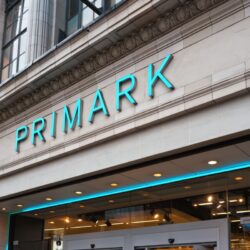In recent months, the UK retail industry has seen several retailers begin proceedings for or actually launch on the stock market with an IPO. Big retail names that pursued this include The Hut Group, Moonpig, Dr Martens, In The Style, Made.com, The Very Group, and Pepco, the parent company of Poundland.
An IPO refers to the process of offering shares of a private corporation to the public in a new stock issuance. Companies must meet requirements by exchanges and the Securities and Exchange Commission to hold an IPO.
There are a number of different exchanges in the UK on which a retailer can list its shares, the main ones being the London Stock Exchange (LSE) or Main Market and the Alternative Investment Market (AIM). In other instances, a listing can be sought in foreign stock markets, as Pepco did in Warsaw just last month.
The key benefit of an IPO is access to permanent capital, meaning that management can focus on long term strategy alone rather than needing to be mindful of the likely demands of investors to exit the business once their returns had been made, and amending corporate strategy to meet these demands.
“We’ve seen a huge increase in activity in the public markets since the pandemic began,” Elizabeth Delaney, a partner at UK law firm TLT, told Retail Gazette.
“For the right company, an IPO is a great route to access working capital in order to maximise opportunities for growth.
“An IPO raises a company’s profile, generates interest and, particularly for retailers, name recognition can drive investor confidence.
“It’s a great way for a company to raise a war chest to fund an investment or acquisition strategy.
“However, it does necessitate committing time and finances to the IPO process, and it requires the board to ensure that the company has a clear corporate governance policy in place.
“The right advisers are essential to support the process and work with the board to prepare them for the rigours of regulatory and public scrutiny that will follow an application for admission to trading.”

Delaney added that the retail sector would likely see an increase in pureplay online retailers launching on the stock market after their successes during the Covid-19 pandemic.
Moonpig’s debut on the LSE in February grabbed headlines due to its market capitalisation of £1.2 billion. The online greeting cards and gift retailer said the offer price of its IPO would be 350p per share.
The flotation comprised 5.7 million new shares to raise gross proceeds of £20 million and 134.6 million existing shares sold by certain existing shareholders – equating to a total offer size of £491.2 million.
Moonpig chief executive Nickyl Raithatha said at the time that listing on the LSE would provide new opportunities for the retailer.
Dr Martens also grabbed headlines in February after its stock market listing made multimillionaires out of its senior staff, including chief executive Kenny Wilson and chairman Paul Mason.
Wilson offloaded some of his holding in the IPO, and has a 1.12 per cent stake worth £54.7 million, while Mason also sold shares and has a 0.79 per cent stake worth £38.6 million.
For The Hut Group, the online retail business saw its shares rise by almost a third following its LSE debut in September – making the UK’s biggest float since 2017.
Founder Matthew Moulding, who is both chief executive and chairman of the newly-listed firm named THG Holdings, become a billionaire after shares surged by almost a third, raising £1.9 billion.
The successful, high-profile IPOs seen by Moonpig, Dr Martens and The Hut Group seemingly inspired other retailers to capitalise on their pandemic success and consider a UK stock market listing – all in the space of the last six months. These include online beauty retailer Beauty Bay, online fashion retailer In The Style, online furniture retailer Made.com, online crafts retailer Lovecrafts, second hand tech retailer MusicMagpie, and even The Very Group.
“The last year has shown that shoppers’ behaviour is changing and more and more of our purchases are now online,” Delaney said.
“This is likely to remain elevated even after shops have reopened, and the potential reach and customer convenience of an online-only business can outweigh the advantages of a bricks-and-mortar site for some retailers.”
Fran Quilty, chief executive and co-founder of ecommerce data specialist Conjura, argued that ecommerce was one of just a few sectors that have grown – significantly – on the back of the pandemic.
“Valuation multiples in the public markets are in many cases currently exceeding the private markets, for instance The Hut Group is currently trading at approximately 54 times the EBITDA,” he explained.
“We’ve seen a huge increase in activity in the public markets since the pandemic began”
“As such, I do expect to see more big fund raises to come this year.
“However, it is worth bearing in mind that public isn’t the only route to success. Ecommerce is considered hot by all sorts of investors at the moment. This means there’s no shortage of growth funding available for businesses at different stages in their lifecycles.
“The key benefit of an IPO is that it unlocks a lot of funding fast. This is typically needed for one of two reasons, either to drive economies of scale or to enter new geographies.
“We see this in the case of Moonpig, which after 20 years has likely reached the limits of its growth in some of its existing markets.
“The company accounts for around 90 per cent of the online greeting cards segment in the UK, so realistically it needs to look overseas to find new audiences.”
Matt Goode, head of consumer at investment bank FinnCap Capital Markets, said the market was ripe for retail IPOs.
“There are two clear drivers here – the expectation of increased consumer spending following a long period of saving by consumers and secondly a permanent behavioural shift in favour of the online channel/ecommerce businesses,” he said.
“The growth experienced by ecommerce and direct-to-consumer businesses in the last 12 months has been spectacular, and currently stock market investors are willing to pay a premium for many such businesses when compared to private equity.
“We are engaged with a number of potential IPO prospects, and are aware of other larger companies such as Made.com which are actively considering listing.
“We are therefore expecting to continue to see retail sector IPO’s during 2021, primarily pureplay ecommerce businesses or those with an omnichannel approach.”
IPOs will arguably be an increasingly more attractive option for retailers that experienced an acceleration to their revenues or strategies during the pandemic. Those that took a holistic approach to reconfigure their entire business model while developing an omnichannel business are the ones likely to be most resilient.
Online-only retailers have undoubtedly benefitted from the channel shift from physical to online retail during the pandemic and much of this change in consumer behaviour is expected to remain. This has allowed online businesses to capture multiple years’ worth of growth over the past 12 months and scale at a much faster rate, creating businesses that are attractive to public market investors.
Click here to sign up to Retail Gazette‘s free daily email newsletter


















